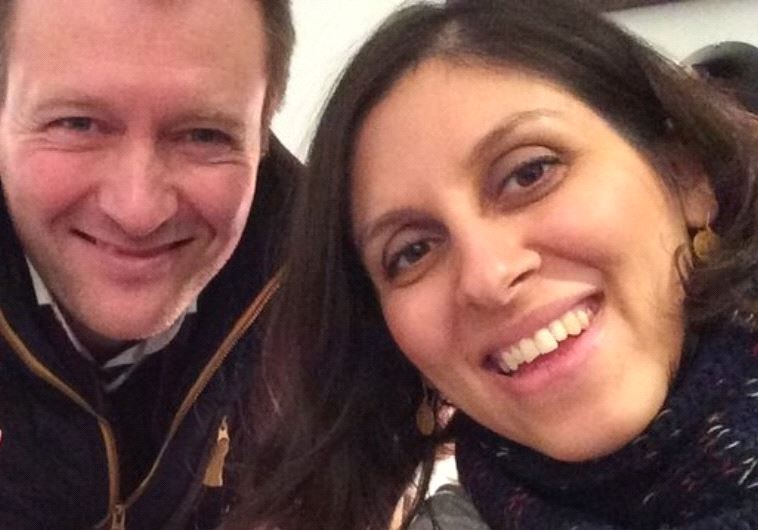British-Iranian national prisoner in Tehran begins new hunger strike
Foreign Secretary Jeremy Hunt granted Zaghari Ratclife diplomatic protection in March, but Tehran refused the call.
 Nazanin Zaghari-Ratcliffe (R)(photo credit: FREE NAZANIN RATCLIFFE CHANGE.ORG PETITION)
Nazanin Zaghari-Ratcliffe (R)(photo credit: FREE NAZANIN RATCLIFFE CHANGE.ORG PETITION)